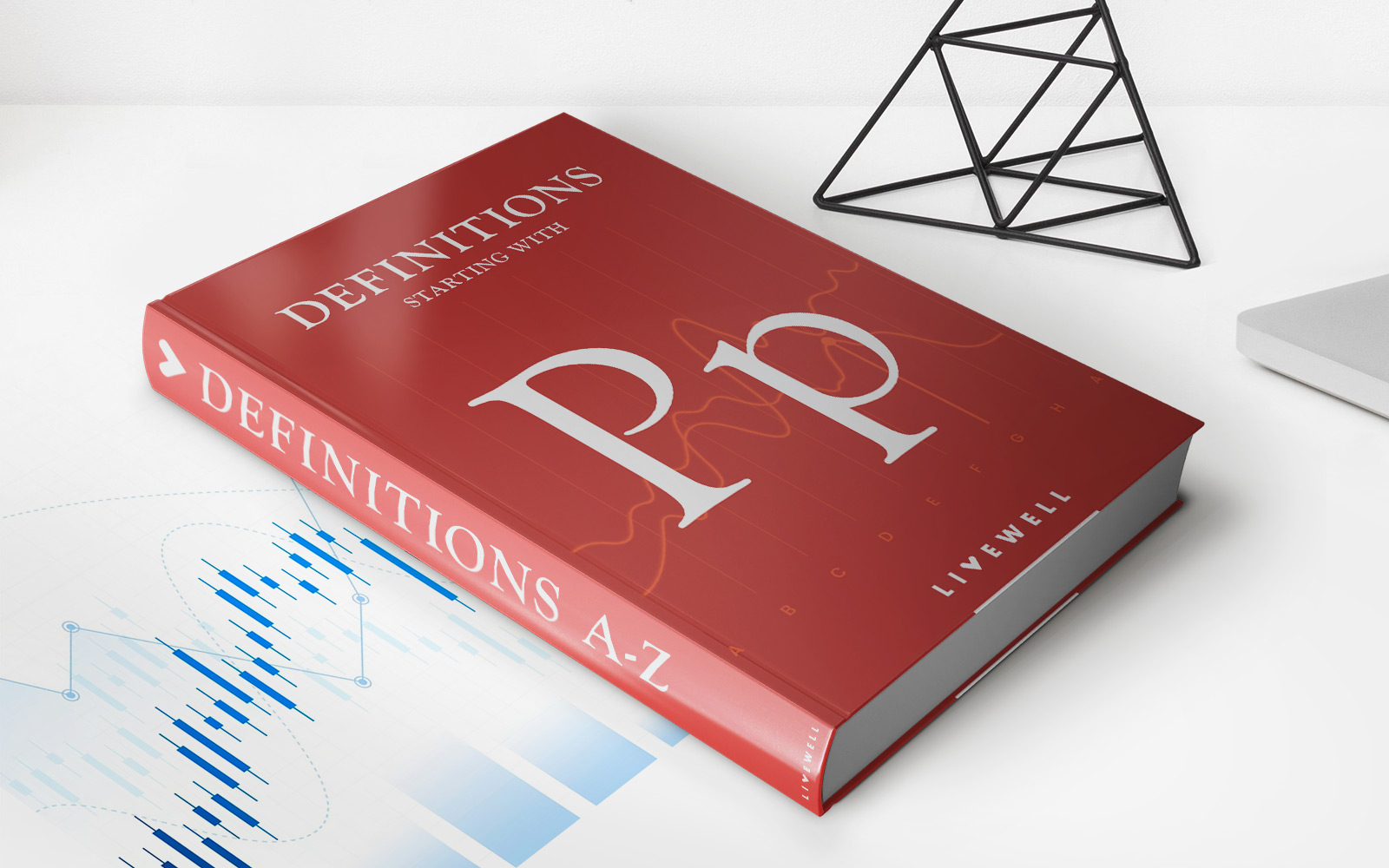Home>Finance>What Is The Grace Period For Monthly Health Insurance Premiums?


Finance
What Is The Grace Period For Monthly Health Insurance Premiums?
Modified: February 21, 2024
Learn about the grace period for monthly health insurance premiums and how it impacts your finances. Stay informed to avoid any financial penalties.
(Many of the links in this article redirect to a specific reviewed product. Your purchase of these products through affiliate links helps to generate commission for LiveWell, at no extra cost. Learn more)
Table of Contents
Introduction
Health insurance is a crucial aspect of financial planning, providing coverage for medical expenses and preserving our financial stability in the face of unexpected healthcare costs. One of the key components of health insurance is the premium, which is the amount we pay regularly to maintain coverage.
However, life is full of uncertainties, and there may be times when we are unable to pay our health insurance premiums on time. This is where the concept of a grace period comes into play. Understanding what a grace period is and how it applies to monthly health insurance premiums is essential to avoid any negative consequences.
In this article, we will delve into the details of the grace period for monthly health insurance premiums. We will explain what it encompasses, its duration, and the potential consequences of late payments. Additionally, we will explore important considerations to keep in mind during this grace period.
By having a solid understanding of the grace period for health insurance premiums, you can navigate unexpected financial challenges while ensuring continuous coverage and peace of mind.
Understanding Health Insurance Premiums
Before diving into the concept of a grace period for monthly health insurance premiums, it’s essential to have a clear understanding of what health insurance premiums are and how they work. Health insurance premiums are the regular payments made by policyholders to the insurance company to maintain coverage.
The amount of the premium is determined by various factors, such as the type of insurance plan, the level of coverage, the age and health condition of the insured individual, and the location of the insured. Premiums can be paid on a monthly, quarterly, or annual basis, depending on the terms of the insurance policy.
Health insurance premiums act as a form of financial protection, offering coverage for a wide range of medical services and treatments. These can include doctor’s visits, hospital stays, prescription medications, preventive care, and more. By paying the premiums, policyholders gain access to these healthcare services without incurring exorbitant out-of-pocket costs.
It’s important to note that the cost of health insurance premiums can vary significantly depending on the provider and the specific plan chosen. Individuals and families can select different coverage options based on their needs and budgets, with varying levels of deductibles, copayments, and out-of-pocket maximums.
Health insurance premiums are a critical financial consideration for individuals and families, as they are an ongoing expense that must be prioritized to maintain continuous coverage. Failure to pay premiums can result in temporary or permanent loss of health insurance benefits.
Now that we have a solid understanding of health insurance premiums, let’s explore the concept of a grace period and how it applies to monthly health insurance premiums.
What is a Grace Period?
A grace period is a specified period of time after the due date for a payment during which the payment can still be made without incurring any late fees or penalties. It is a leniency granted by the insurance company to policyholders, allowing them a buffer to make their payments.
In the context of health insurance premiums, a grace period is the timeframe provided to policyholders to pay their monthly premiums after the due date, without facing immediate consequences or loss of coverage. It serves as a safety net for individuals who may encounter temporary financial difficulties and ensures uninterrupted access to healthcare services.
The purpose of the grace period is to provide policyholders with a reasonable amount of time to catch up on their payments and prevent an immediate termination of coverage. It recognizes that unexpected circumstances can arise, causing a temporary inability to pay premiums on time.
During the grace period, policyholders can still access healthcare services and receive the benefits outlined in their insurance policy. It grants them a window of opportunity to bring their premium payments up to date while maintaining continuous coverage.
It’s important to note that a grace period is not a waiver of the premium or a forgiveness of the payment owed. It is merely a temporary leniency provided by the insurance company to accommodate certain situations and allow policyholders the chance to make their payments without severe consequences.
Each insurance company and policy can have different guidelines regarding the duration and terms of the grace period for health insurance premiums. It’s crucial to review the specific details of your policy to understand the grace period provisions that apply to your coverage.
Now that we understand what a grace period is in the context of health insurance premiums, let’s explore the duration of this period and what it means for policyholders.
Grace Period for Monthly Health Insurance Premiums
The grace period for monthly health insurance premiums refers to the allotted timeframe after the due date for policyholders to pay their premiums without facing immediate consequences. It is an important provision that ensures individuals have an opportunity to catch up on their payments and maintain continuous coverage.
The duration of the grace period can vary depending on the insurance company and the specific policy. Generally, grace periods for monthly health insurance premiums range from 30 to 90 days. During this timeframe, policyholders can submit their late payments without incurring any late fees or penalties.
Policyholders should be aware that making payments during the grace period does not reset the billing cycle. The due date for the subsequent month’s premium will still be based on the original billing cycle, regardless of when the payment for the previous month was made.
It’s important to note that different insurance companies may have varying guidelines regarding the grace period. Some insurers may provide a fixed number of days, while others may have a more flexible approach, considering factors such as the policyholder’s payment history and the specific circumstances leading to the late payment.
During the grace period, policyholders should make every effort to pay their premiums and bring their payments up to date as soon as possible. Continuous coverage is crucial to ensure access to healthcare services and the benefits outlined in the insurance policy.
It’s important to stay proactive during the grace period and communicate any financial challenges or difficulties with the insurance company. They may be able to provide additional resources or assistance to help policyholders navigate temporary financial hardships.
Policyholders should also keep in mind that relying consistently on the grace period for making late premium payments is not advisable. Frequent use of the grace period can negatively impact a policyholder’s payment history, potentially leading to future difficulties in obtaining coverage or increased premium rates.
Understanding the duration and terms of the grace period for monthly health insurance premiums is essential to take full advantage of this leniency while avoiding any potential consequences. Now, let’s explore the potential repercussions of late payments beyond the grace period.
Length of the Grace Period
The length of the grace period for health insurance premiums can vary depending on the insurance company and the specific policy. While some insurers may provide a standard grace period of, for example, 30 days, others may offer a more extended period of up to 90 days.
The duration of the grace period is typically mentioned in the policy documents or can be obtained by contacting the insurance company directly. It is important for policyholders to familiarize themselves with the specific length of the grace period provided by their insurer to ensure they can make timely payments and avoid any lapse or termination of coverage.
It’s crucial to note that the duration of the grace period starts from the due date of the premium payment. For example, if the due date for a monthly premium is the 1st of each month, and the grace period is 30 days, the policyholder would have until the 30th of that month to make the payment without facing immediate consequences.
During the grace period, policyholders should make every effort to pay their premiums as soon as possible. It is in their best interest to settle the payment within the grace period to maintain continuous coverage and avoid any disruptions in healthcare benefits.
Additionally, policyholders should be aware that making payments during the grace period does not exempt them from paying the missed premium. It is crucial to catch up on all outstanding payments to avoid accumulation of debt and potential termination of coverage.
It’s important to emphasize that each insurance company and policy can have different grace period provisions. As a policyholder, it is crucial to read and understand the terms and conditions mentioned in your specific policy to ensure compliance and avoid any adverse consequences.
Now that we understand the length of the grace period, let’s explore the potential consequences of late premium payments beyond this period.
Consequences of Late Payments
While a grace period provides a buffer for policyholders to make late premium payments without immediate consequences, it’s important to understand that there can be potential repercussions for consistently making payments beyond the grace period or failing to catch up on missed premiums. Here are some of the consequences of late payments:
- Loss of coverage: If premium payments are consistently late or missed altogether, the insurance company may choose to terminate the policy. This can leave individuals without coverage, resulting in potential financial strain and limited access to healthcare services.
- Waiting periods: If a policy is terminated due to non-payment, reapplying for health insurance may result in waiting periods before coverage is reinstated. During this waiting period, individuals may not be eligible for certain benefits or may have limited coverage for pre-existing conditions.
- Higher premium rates: A history of late or missed premium payments can impact future premium rates. Insurance companies rely on payment history to assess risk and determine premium amounts. Individuals with a poor payment history may face higher premium rates when applying for new coverage.
- Denial of coverage: Non-payment or consistent late payments can affect future eligibility for health insurance coverage. Insurance companies may deny coverage or charge higher premiums to applicants with a history of non-payment.
- Loss of benefits: In some cases, a lapse in premium payments may result in the loss of certain benefits or coverages outlined in the policy. This can include coverage for specific medications, treatments, or healthcare services.
It’s crucial for policyholders to prioritize timely premium payments to avoid these potential consequences. Paying premiums on time helps ensure uninterrupted access to healthcare services and the full benefits of the insurance policy.
If financial challenges arise, it’s important to communicate with the insurance company as soon as possible. They may be able to offer alternative payment options or assistance programs to help policyholders navigate temporary difficulties and continue their coverage.
Now that we understand the potential consequences of late premium payments, let’s explore important considerations during the grace period.
Important Considerations during the Grace Period
During the grace period for health insurance premiums, there are several key considerations that policyholders should keep in mind to ensure they make the most of this leniency. Here are some important considerations:
- Timely payment: Although the grace period provides additional time to make premium payments, it is still crucial to pay within this period. Making payments promptly ensures uninterrupted coverage and prevents any negative consequences.
- Communication with the insurer: If you anticipate difficulty in making the payment within the grace period, it is important to communicate with your insurance company. They may be able to offer assistance options or work out alternative payment arrangements to help you maintain coverage.
- Payment methods: Check with your insurance company about the accepted payment methods during the grace period. Some insurers may have specific requirements, online portals, or payment platforms for late payments. Ensure you understand and follow the correct procedures to avoid any delays in processing your payment.
- Record keeping: Keep thorough records of all payments made during the grace period. This includes documenting the date, amount, and method of payment to serve as proof of compliance if any disputes or issues arise in the future.
- Review your policy: Take the time to thoroughly review your insurance policy during the grace period. Understand the terms and conditions, coverage details, and any potential limitations or exclusions. This will help you make informed decisions regarding your health insurance coverage.
- Budgeting and financial planning: Use the grace period as an opportunity to assess your budget and financial situation. Identify any areas where adjustments can be made to ensure timely premium payments moving forward. This may include evaluating expenses, seeking additional income sources, or exploring potential cost-saving measures.
By considering these factors during the grace period, policyholders can maximize the benefit of this leniency while maintaining continuous coverage and avoiding any unnecessary complications.
Now, let’s conclude our discussion on the grace period for monthly health insurance premiums.
Conclusion
The grace period for monthly health insurance premiums is a crucial provision that provides policyholders with a window of opportunity to make late payments without immediate consequences. It is a leniency granted by insurance companies to accommodate temporary financial difficulties and ensure continuous coverage for individuals and families.
Understanding health insurance premiums, the concept of a grace period, and the potential consequences of late payments are essential to navigate the complexities of health insurance. By paying premiums on time and within the grace period, policyholders can maintain uninterrupted access to healthcare services and maximize the benefits outlined in their insurance policies.
During the grace period, it is important to communicate with the insurance company if any financial challenges arise. They may be able to offer alternative payment options or assistance programs to help policyholders maintain coverage during difficult times.
Policyholders should also review their insurance policies, familiarize themselves with the length of the grace period, and keep thorough records of all payments made during this period. This ensures compliance, helps resolve any disputes, and serves as proof of compliance in case of any issues in the future.
Lastly, budgeting and financial planning play a significant role in ensuring timely premium payments moving forward. By assessing expenses, seeking additional income sources, and exploring cost-saving measures, policyholders can prioritize premium payments and avoid relying heavily on the grace period in the future.
In conclusion, the grace period for monthly health insurance premiums is designed to provide individuals and families with a temporary safety net during challenging financial situations. By understanding and leveraging the grace period effectively, policyholders can maintain continuous coverage, access necessary healthcare services, and ensure their financial well-being in the face of unexpected medical expenses.














